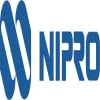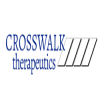The future of Alkermes' experimental drug for serious depression could hinge on the views of a panel of experts meeting Thursday — and how adaptable they think regulators should be in deciding on approval.
Only one of the three key clinical studies testing the therapy clearly succeeded, with the other two falling short of goal. Alkermes' case, therefore, is a major test of how far the agency's more flexible approach, seen in areas like oncology, extends.
Alkermes believes the evidence it will present before the expert panel shows the drug, called ALKS-5461, could play an important role in treating a condition that affects an estimated 16 million Americans. Still, company CEO Richard Pops acknowledged in an interview with BioPharma Dive that approval will require the FDA to be open-minded.
The panel convening Thursday only serves to advise the FDA, which will make a decision on ALKS-5461 early next year. Typically, the FDA takes the committee's recommendations.
Briefing documents prepared by FDA staff and released Tuesday suggest the regulator has several major issues with Alkermes' application, not least of which is the mixed clinical track record for ALKS-5461.
If the committee takes those points to heart and issues a clear thumbs down later this week, approval would likely be in jeopardy. A positive vote could support a more accommodating FDA review, but that's no guarantee, either.
"We think that the Advisory Committee vote will need to be overwhelmingly positive for ALKS-5461 to have a chance at approval," wrote Credit Suisse's Vamil Divan in a note to investors Tuesday.

One hit, two misses
By the traditional FDA approval standards of two well-controlled studies, things don't look good for Alkermes. It's asking for a green light for a drug that met its primary endpoint in just one of three Phase 3 trials.
While the agency has loosened this standard in certain areas, it generally serves as a baseline for successful review.
In the first two trials, called FORWARD-3 and FORWARD-4, ALKS-5461 failed to show a significant benefit compared to placebo in patients with major depressive disorder who didn't respond well to standard therapies.
But Alkermes saw reasons for optimism from data on one of two dose levels of ALKS-5461 tested in FORWARD-4. As a result, the biotech increased enrollment in its third study and modified how it planned to measure success — a decision that the FDA, according to its briefing documents, advised "explicitly" against.
That trial, or FORWARD-5, read out positive 10 months later, giving Alkermes enough data to open discussions with the FDA on filing for approval.
A Refusal to File letter this past April from the FDA indicating it couldn't accept Alkermes' application marked a final hiccup, albeit one that was resolved within two weeks.
FORWARD progress for ALKS-5461?
| Patients enrolled | Doses tested | Study outcome | |
|---|---|---|---|
| FORWARD-5 | 407 | 2 mg, 1 mg compared to placebo | Primary endpoint hit for 2 mg |
| FORWARD-4 | 385 | 2 mg, 0.5 mg compared to placebo | Missed primary endpoint, but favorable efficacy trend for 2 mg |
| FORWARD-3 | 329 | 2 mg compared to placebo | Missed primary endpoint |
SOURCE: Company
Asking for flexibility
Alkermes' Pops admitted in an interview that the bumpy road to regulatory review will be under the microscope Thursday and throughout the FDA's review.
He argued, however, that the treatment effect of the 2 mg dose of drug actually was consistent across all three studies. What changed, according to Pops, was the degree of placebo response — a known difficulty in studies of psychological disorders.
While that's true, it's only part of the story.
"Psychiatry is a challenging space where patient populations are heterogeneous, clinical endpoints are subjective, and the placebo effect can be high — all of these factors seem to go into how the agency reviews drugs in this area," explained Paul Matteis, a senior equity analyst at Stifel Financial, in an email. "That being said, for ALKS-5461 there are multiple points of potential flexibility that are being asked for by Alkermes."
Notably, Alkermes used an uncommon design in FORWARD-4 and FORWARD-5 to offset the expected placebo response rate.
Known as sequential parallel comparative design (SPCD), this approach re-randomizes placebo non-responders after an initial testing phase to either switch to the trial drug or receive placebo again.
This method is likely to come under scrutiny at the advisory committee meeting, and adds complexity to a mixed dataset. Alkermes' studies are the first using SPCD to come before the FDA's division of psychiatry products, and the regulator made it clear that it still has unresolved questions on its use.
"As a result, the Agency has not endorsed the use of SPCD in a confirmatory trial setting," FDA staff wrote in the panel documents.
For Maurizio Fava, director of clinical research at the Massachusetts General Hospital Research Institute and lead author of a recently published paper of ALKS-5461, Alkermes' methods represent innovation rather than radical design.
"Alkermes adopted innovative approaches to address the problem of excessive placebo response rates in depression trials," Fava wrote in an email to BioPharma Dive. "We, as a field, cannot continue to use obsolete methodologies often associated with failures to detect therapeutics signals only because we are very familiar with them."
Fava has received research support from Alkermes and is a named inventor on several patents for SPCD.
Fava and Alkermes do have a point — to a degree. The FDA’s noted in previous draft guidance that even trials of effective antidepressants frequently fail due to high placebo response rates. And while new measurement techniques have swiftly been incorporated in oncology, Alkermes believes the same flexibility hasn't been adopted in evaluating depression drugs.
Still, the questions around SPCD add to the uphill battle Alkermes faces in seeking approval.
"If ALKS-5461 had succeeded in all three of its Phase III trials, I don't think the unique trial design would be a hang-up that'd inhibit approval," said Stifel's Matteis. "But with only one of three succeeding — and other analytical questions surrounding FORWARD5 — I think the validity of SPCD becomes a more salient topic of discussion."
Opioid in an opioid crisis
Amid a widespread opioid epidemic, Alkermes' drug will likely also get further scrutiny due to its opioid-based mechanism of action.
ALKS-5461 works by acting on the body's natural opioid system, which is thought to play a role in regulating mood. Smoothing out dysregulated signaling, Alkermes believes, could help address the emotional and psychological symptoms that come with a major depressive disorder.
The biotech designed ALKS-5461 as a fixed dose combination of the opioid buprenorphine with a novel compound called samidorphan. Samidorphan inhibits the mu opioid receptor and therefore should prevent patients from feeling high, according to Mass General's Fava.
Clinical testing, however, showed no significant evidence of withdrawal following end of treatment, and an abuse potential study suggests samidorphan works as intended.
Still, the FDA will be weighing those considerations in its review. "Although we agree with the Applicant that there are fewer opioid properties for this combination product than there likely would have been from the opioid alone, there remains some evidence of a mild opiate effect (including mild withdrawal effects) from the trials," FDA staff wrote.
Alkermes expects ALKS-5461 would become a scheduled drug though the Drug Enforcement Administration, if approved. It also has proposed a Risk Evaluation and Monitoring Strategy to ensure proper use.
An uncertain verdict
Overall, analysts aren't putting high odds on Alkermes' ability to win over the FDA — an impression strengthened by release of the briefing documents Tuesday.
"Ultimately we think it's more likely than not to get a Complete Response Letter," said Stifel's Matteis, who puts the chances of an approval at 30%.
Credit Suisse's Vamil Divan is more optimistic yet still think it's just as likely the FDA rejects ALKS-5461 as it is for the agency to approve the drug.
"Even a strong scientific backing on Thursday will not necessarily guarantee the FDA will approve the application without additional supportive data," he wrote in an Oct. 30 note to investors.
Investors seemed to share that opinion Tuesday morning, initially sending shares in Alkermes down by nearly 6%.
On a recent earnings call, Alkermes' Pops appeared to hedge expectations for ALKS-5461 slightly, drawing attention to the imminent Phase 3 results from another pipeline candidate, ALKS-3831, in schizophrenia.
Pops also noted that Alkermes could use an ongoing study of ALKS-5461 to address any requests from the FDA for more data on the drug.
Either way, Thursday's verdict and the FDA's eventual decision will represent a pivot point for Alkermes and its pipeline.
For the FDA, its decision could also be consequential. A rejection of ALKS-5461 wouldn't be hard to justify, given the many questions. But an approval would signal a bending of regulatory standards for the sake of bringing a new treatment to patients with depression.





















